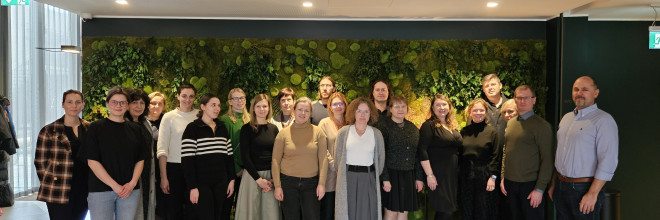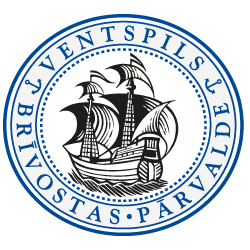
Over the next four years, the Freeport of Ventspils Authority, participating in the project “MarTe: Marine Technology Excellence Hub for Sustainable Blue Economy in the Baltics”, funded by Horizon Europe, the key funding programme for research and innovation of the European Union, will analyze the opportunities of the Freeport of Ventspils to develop its operations following the opportunities and sustainability prerequisites of the blue economy. The project, aiming to work out practical solutions and policy improvement suggestions for the blue economy in Estonia and Latvia, involves 13 education and research, public sector, business development, and non-governmental organizations.
The blue economy is a term used to describe an economic model that focuses on the sustainable use of marine and ocean resources to stimulate economic growth, improve the quality of life, and protect the environment. This direction is particularly relevant in these climate and geopolitical conditions for environmental and maritime-related business development establishments such as the Freeport of Ventspils Authority.
The initiator of the project “MarTe Marine Technology Excellence Hub for Sustainable Blue Economy in the Baltics” is the Environmental Investment Center (EIC) from Estonia. It joins the key associates in the field of marine innovation and blue economy from Latvia and Estonia: Tallinn University of Technology, University of Tartu, Association of Estonian Maritime Industries, Saare Development Centre, Saaremaa Leader Action Group, Latvian Institute of Aquatic Ecology, Kurzeme Planning Region, Investment and Development Agency of Latvia, Baltic Coasts Association, World Wide Fund for Nature, Ventspils University of Applied Sciences and the Freeport of Ventspils Authority. On February 6 and 7, the official launch seminar of the project took place in Pärnu, Estonia.
The total project budget is almost 4.8 million euros, of which 369,450 euros is the budget of the Freeport of Ventspils Authority. The Freeport of Ventspils Authority will have the chance to examine advanced marine technologies, including autonomous and hydrogen-powered drones for environmental monitoring and dual use, as well as the use of hydrogen by-products in aquaculture and the circular economy. Throughout the project, a Research and Innovation (R&I) strategy will be developed, along with defining priority sectors, based on which the Freeport of Ventspils Authority will lead the creation of additional commercialization and development plans, as well as conduct research on the valorization of “green” hydrogen production by-products and create a business model for the concept of a blue economy and sustainable energy technology transfer center. The MarTe project is compatible with the Freeport of Ventspils strategy regarding innovation and sustainability, establishing the renewable energy production and service sector. The transition from a fossil energy transit port to a port for the export of locally sourced goods and renewable energy includes servicing wind farms, generating solar energy, participating in the future hydrogen economy, and engaging in the implementation of the European Green Deal, achieving energy sovereignty, sustainable growth, and development.
